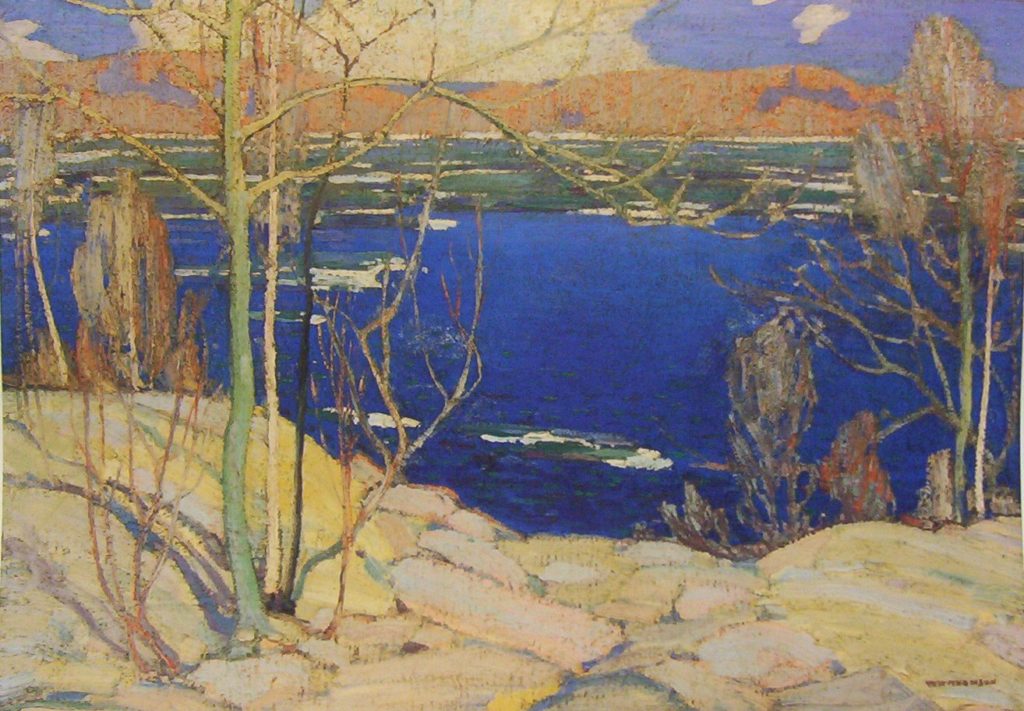
Friday
“If winter comes, can spring be far behind?” Percy Shelley asks—perhaps rhetorically, perhaps because he’s genuinely unsure—at the end of “Ode to a West Wind.” As we languish in the winter of our discontent, here’s a lovely poem to remind us that, at least according to the seasonal calendar, we have slipped into the season that traditionally symbolizes hope.
I love the mixture of joy and caution in Katherine Mansfield’s “Very Early Spring.” On the one hand, we see breathless anticipation. The ice on the lakes has melted, and the bows and stems of the trees “shiver, and wake from slumber” as the sun walks in forest. “Over the barren branches he shakes his yellow curls.”
Yet—the qualifying word appears twice in the poem—the forest is “full of the sound of tears” and doesn’t know whether to trust the change of weather. Although the wind’s “waking laughter” is “shrill and clear,” it’s not clear whether this is a promise of a new day. Perhaps the blue lakes are trembling and “the flags of tenderest green” are bending and quivering out of anxiety rather than joy. We don’t know for sure.
“April is the cruelest month,” T. S. Eliot famously writes, and Mansfield reminds us how brave it is to hope.
Very Early Spring
By Katherine Mansfield
The fields are snowbound no longer;
There are little blue lakes and flags of tenderest green.
The snow has been caught up into the sky--
So many white clouds--and the blue of the sky is cold.
Now the sun walks in the forest,
He touches the bows and stems with his golden fingers;
They shiver, and wake from slumber.
Over the barren branches he shakes his yellow curls.
Yet is the forest full of the sound of tears....
A wind dances over the fields.
Shrill and clear the sound of her waking laughter,
Yet the little blue lakes tremble
And the flags of tenderest green bend and quiver.

